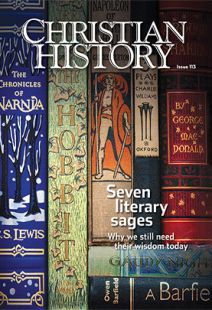Dorothy L. Sayers’s surprising legacy
In 1947, as Britain was still rebuilding after World War II, Dorothy L. Sayers gave a talk at Oxford University titled “The Lost Tools of Learning.” She argued in that talk that the educational system was failing at what should be its primary goal: teaching children to learn. She called for a return to a model of teaching found in medieval universities, the “Trivium.”
Derived from ancient Greek philosophers, the Trivium focused on three areas—grammar, dialectic, and rhetoric. These subjects involved learning a language, learning how to construct an argument, and learning how to express oneself in that language. It was on this foundation, she argued, that all other learning must be built.
The talk may have been a bit radical, though her Oxford-educated audience was likely agreeable to her ideas. But few in attendance could have anticipated the effect the speech would have on Christian education in the United States.
The idea of reviving classical education was not the sole property of Sayers, but her name became explicitly tied to the American homeschool movement when Douglas Wilson—controversial writer and pastor from Moscow, Idaho—published Recovering the Lost Tools of Learning based on her ideas in 1991. The book came out just as homeschooling hit the mainstream. With many parents exploring new ways to teach their children, the promise of classical education from a Christian perspective was very appealing.
In subsequent years Sayers’s ideas have evolved into a full-blown Christian classical education movement. It emphasizes reading great works of Western literature, learning Greek and Latin, and peering into every subject through a Christian lens.
Any number of books espouse the model today; more than a few associations and organizations have been formed to advocate it; and across the country private schools have been established to offer parents a way for their children to receive a “classical” education.
Parents who homeschool have their choice of fully articulated classical curricula from many publishers. When they are ready for classical college coursework, schools such as Patrick Henry College in Purcellville, Virginia, and St. John’s College in Annapolis, Maryland, are waiting to review their applications.
By Matt Forster
[Christian History originally published this article in Christian History Issue #113 in 2015]
Matt ForsterNext articles
The storyteller
The stories of George MacDonald (1824-1905) showed goodness and holiness to Lewis and Chesterton—and show those same things to us
Kirstin Jeffrey JohnsonWhat C. S. Lewis learned from his “master”
Lewis’s recommendation to seekers: read George MacDonald
Kirstin Jeffrey JohnsonLearning what no one meant to teach
The educational experiences of C. S. Lewis (1898-1963)
Michael WardDid you know?
MacDonald’s players, Tolkien’s grave, Chesterton’s pajamas, and Lewis’s hat
the editors



